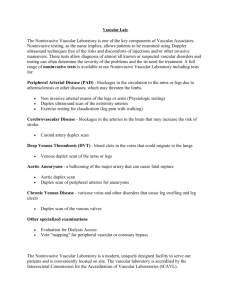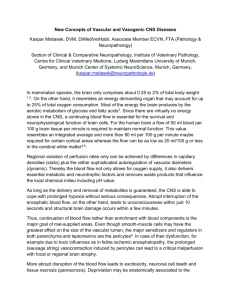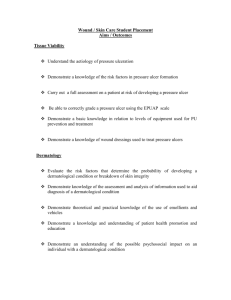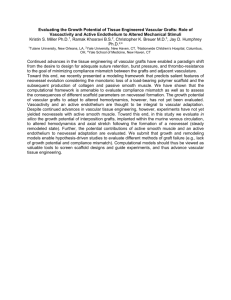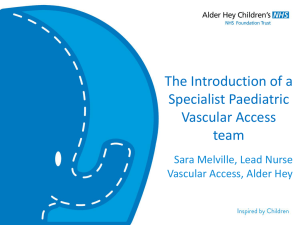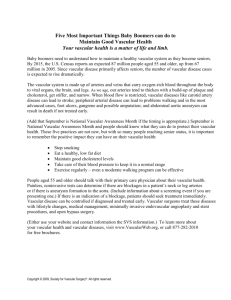Avoiding Vascular Disease
advertisement
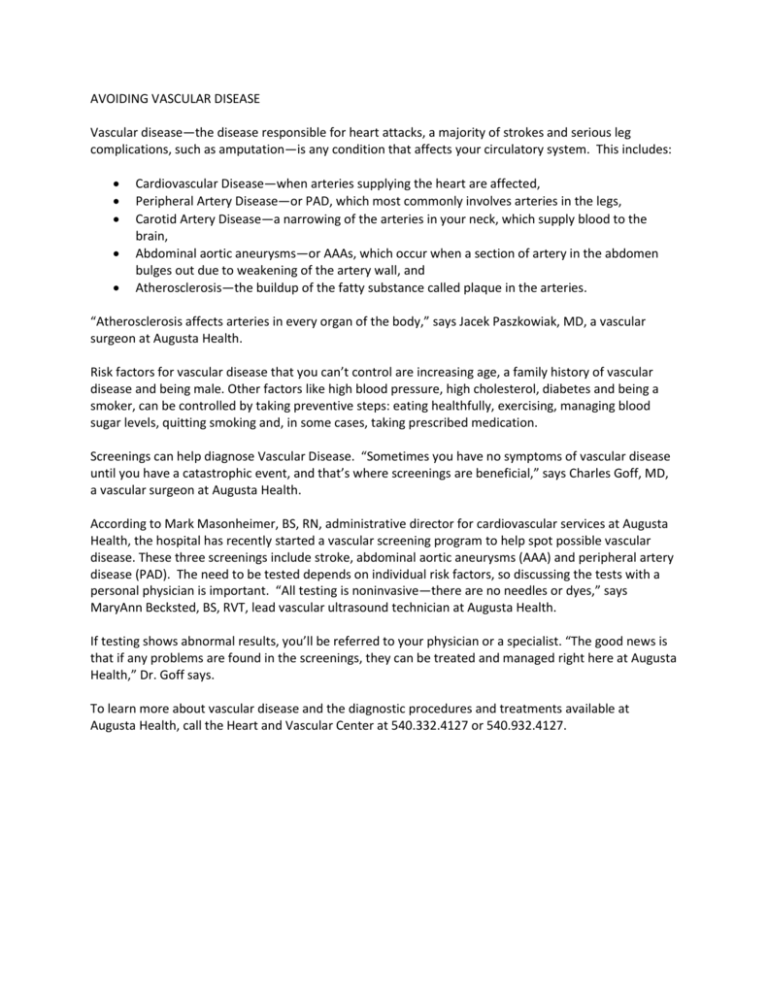
AVOIDING VASCULAR DISEASE Vascular disease—the disease responsible for heart attacks, a majority of strokes and serious leg complications, such as amputation—is any condition that affects your circulatory system. This includes: Cardiovascular Disease—when arteries supplying the heart are affected, Peripheral Artery Disease—or PAD, which most commonly involves arteries in the legs, Carotid Artery Disease—a narrowing of the arteries in your neck, which supply blood to the brain, Abdominal aortic aneurysms—or AAAs, which occur when a section of artery in the abdomen bulges out due to weakening of the artery wall, and Atherosclerosis—the buildup of the fatty substance called plaque in the arteries. “Atherosclerosis affects arteries in every organ of the body,” says Jacek Paszkowiak, MD, a vascular surgeon at Augusta Health. Risk factors for vascular disease that you can’t control are increasing age, a family history of vascular disease and being male. Other factors like high blood pressure, high cholesterol, diabetes and being a smoker, can be controlled by taking preventive steps: eating healthfully, exercising, managing blood sugar levels, quitting smoking and, in some cases, taking prescribed medication. Screenings can help diagnose Vascular Disease. “Sometimes you have no symptoms of vascular disease until you have a catastrophic event, and that’s where screenings are beneficial,” says Charles Goff, MD, a vascular surgeon at Augusta Health. According to Mark Masonheimer, BS, RN, administrative director for cardiovascular services at Augusta Health, the hospital has recently started a vascular screening program to help spot possible vascular disease. These three screenings include stroke, abdominal aortic aneurysms (AAA) and peripheral artery disease (PAD). The need to be tested depends on individual risk factors, so discussing the tests with a personal physician is important. “All testing is noninvasive—there are no needles or dyes,” says MaryAnn Becksted, BS, RVT, lead vascular ultrasound technician at Augusta Health. If testing shows abnormal results, you’ll be referred to your physician or a specialist. “The good news is that if any problems are found in the screenings, they can be treated and managed right here at Augusta Health,” Dr. Goff says. To learn more about vascular disease and the diagnostic procedures and treatments available at Augusta Health, call the Heart and Vascular Center at 540.332.4127 or 540.932.4127.To learn more about vascular disease and the



